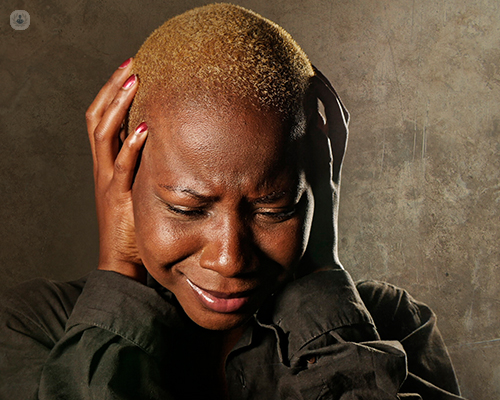Depression and brain fog
Escrito por:Depression has fortunately received an increasing amount of awareness in recent years compared to past decades. However, there are still some associated issues that we don’t often hear about, such as brain fog.
Dr Liam Parsonage explains how brain fog can occur and affect our daily life, as well as how to identify it and what to do if you feel that you’re affected.

What is brain fog?
Brain fog, also called cognitive dysfunction, is the sensation of becoming mentally detached from your everyday thoughts, activities, and tasks. This figurative “dark cloud” or “ fog” can leave the sufferer confused, numb and/or frustrated due to the inability to process their thoughts and emotions as they normally would.
Is brain fog different to depression?
Depression is a mental illness characterised by extended periods of sadness on a severe level. There are various types of depression, such as seasonal affective disorder, prepartum and postpartum depression among others. Brain fog is a symptom of depression, and so any of the earlier mentioned depressions along with others could be a cause of brain fog.
How do depression and brain fog affect daily life?
Depression and brain fog can make it challenging to muster the motivation and energy to accomplish everyday tasks; cleaning, shopping, problem solving, and even having a conversation with people you know well. It also means that focusing and concentrating are difficult, leading to a higher likelihood that you’ll be easily distracted.
Consequently, you may find yourself frustrated at yourself and your situation. On the other hand, you may feel indifference or numbness and this is what prevents you from completing the everyday habits and tasks which you know you are capable of doing.
Understandably, this negative fog clouding your daily abilities and judgment leads to a harmful impact on overall happiness and quality of life.
What causes brain fog in sufferers of depression?
The causes of brain fog and depression are complex. Sometimes it’s more situational, sometimes it can be due to a traumatic experience, or sometimes there’s a family history of depression.
How extreme a period of depression is affects the probability that the sufferer will experience brain fog. Depression can result in feelings such as failure, shame and/or hopelessness. Once brain fog is added to the equation, not being able to work as efficiently, socialise as easily or get basic chores done can amplify these feelings, and a vicious cycle continues.
How do I know if I have depression and/or brain fog?
The typical signs of depression are:
- A negative mood
- Low-level concentration
- An absence of interest in life and the things that were once enjoyable
- Not looking after yourself; your hygiene, health, and diet
- Feeling worthless and guilty
Signs aren’t limited to mood, however, as there are physical signs too
- A lack of energy
- No appetite
- Inability to sleep well ( insomnia ) or rest well
- Sleeping too much
If you feel like you’re not fully in your own body, or if you feel there is something separating you from a clear state of mind, you could have brain fog on top of depression.
What treatments are available for brain fog and depression?
When treating depression, therapy can be used to identify the cause of the depression as well as to find a coping strategy. Other options are cognitive behavioural therapy or to take antidepressants. By treating depression, the brain fog as a symptom should become less severe or disappear.
When should I seek help if I think I have depression?
The earlier you seek help, the easier depression will be to treat. If you feel you’re already deep into depression or brain fog, this doesn’t mean you’ve waited too long, it may be that the signs simply weren’t always obvious and there are still ways to treat it.
In any case, once you’ve considered that you’ve felt depressed for more than a couple of weeks, visit your GP or a specialist to try and find the root of the cause, along with which treatment is most suitable for you.
Dr Liam Parsonage is a highly skilled psychiatrist whose expertise involves, but is not limited to, depression, sleep disorders and anxiety. If you feel you’re in need of expert advice concerning your mental health, don’t hesitate to book a consultation with Dr Parsonage via his profile.


